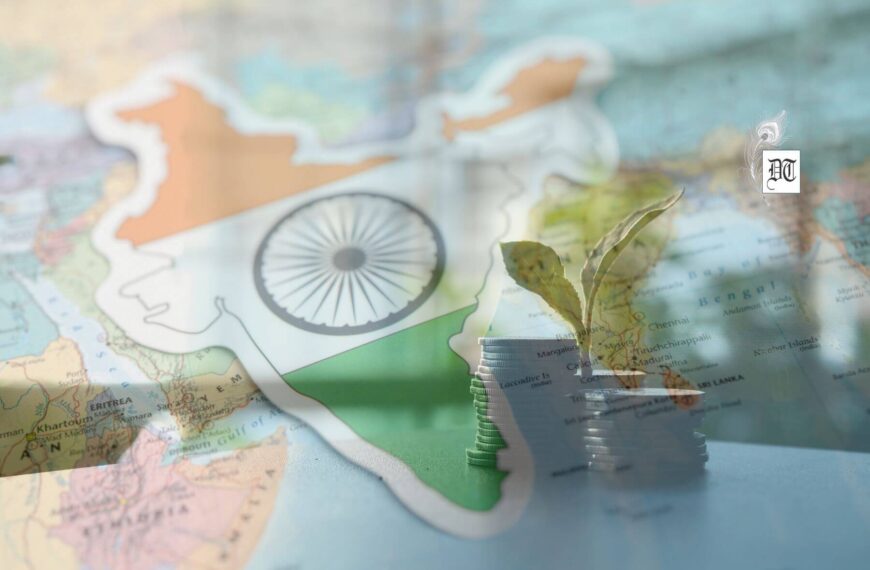Our GDP is one of the fastest growing, agriculture has made India food safe. Literacy and life expectancy are both up massively. A consumer has massive choices in almost all the product and service areas. So, this is no small achievement. But the basic question remains. Are we a developed economy yet? After 70 years, is this growth sufficient? Tarun seeks answers for an important question, in the weekly column, exclusively in Different Truths.
Ever since I was a school student, I have always read that India is a developing economy. I am getting on in age, but has India grown too? Developing? Still!! This is the answer I still read in newspapers and on google. That set me up with the question – can India ever get the tag of a developed economy?
I am sure every Indian would love the tag of developed. We cheer for every small achievement. We cheer for our winning cricket team, get heartbroken when it loses. We cheer for the launch of 104 satellites in the space. We cheer for our army. We cheer for an occasional medal in the Olympics. We cheer for a rare Nobel like Kailash Satyarthi. We cheer for even Delhi Metro. We cheer for great airports. We cheer for …err….there would be many others. Ah yes, Bollywood. Is that all? Seventy years freedom, 125 crore people, the largest democracy, computers, English education, science institutes –and what else do we cheer for?
 There are not many things that I can think of for cheering. Am I being unpatriotic? No, journalistic fact-finding and prudence have taken over. Let me think about the journey of our economy since independence.
There are not many things that I can think of for cheering. Am I being unpatriotic? No, journalistic fact-finding and prudence have taken over. Let me think about the journey of our economy since independence.
At that time, Indian economy was constrained by resources. Virtually every product was imported, including such simple ones as sewing machines, bicycles, medicines etc. The rate of growth of per capita income was .5%, 40% people lived below poverty line. Indian economy was a depreciated economy, meaning the wear and tear of factors of production due to supplies to forces fighting II world war, were not replaced. Partition dealt a heavy blow to agriculture, as richly irrigated lands went to the newly formed nation on the western and eastern front. Agricultural growth was stagnant. Literacy was 16%, and life expectancy was 32 years.
Jump to present day, and almost all the parameters have improved by various multiples. GDP is one of the fastest growing, agriculture has made India food safe. Literacy and life expectancy are both up massively. A consumer has massive choices in almost all the product and service areas. So, this is no small achievement. But the basic question remains. Are we a developed economy yet? After 70 years, is this growth sufficient? This is more a subjective question. Still, I will try to be objective.
We are still importing many electronic products. We are still exporting raw materials like iron ore. Our currency has gone from Rs. 5 to a dollar, to about 65 to a dollar. Unemployment and underemployment are still high, and most importantly, our economic system remains one of the most controlled systems in the world still. As of February 2017, India ranked 143 out of a list of 186 countries in the Index of economic freedom, behind even the neighbours Bhutan and Pakistan. The tax system is still outdated even after the introduction of GST, as high and multiple slabs still provide enough complexity, incentive, and ease of avoiding taxes. The government is trying its hardest to plug one loophole after the other, but they will all fail, as the basics of a good taxation system, that of simplicity, lower rates, and right priorities are missing. The right priorities here mean stimulation of the economy, rather than socialism. It is a known fact that tax deductible at source provides the easiest collection of taxes, but we have not been able to devise a system where tax payment is not left to the discretion of an individual but is a necessity as part of a system.
So, while we have traversed a huge distance from being an economy of deficit to that of surplus, we are  still not at the place which belongs to India. Why? Is 70 years a short period?
still not at the place which belongs to India. Why? Is 70 years a short period?
My father used to say one thing-“3 generations are required to change things for good”. Counting 25 years as one generation, we are nearly 3 generations into independence. So, we should have changed for good now. Why have we not been there? I can’t go into reasons, there can be many. But to keep it simple, I dare say many things of the British legacy are still continuing. The education system, the administrative system, the VIP culture, the lack of a truly participative democracy, the inability of the powers that be to decentralise decision-making process, despite there being an elaborate Panchayati Raj system – they are not much different from the British Raj. Until we change that, we are not going to really be called an advanced country.
When will that change? The change is happening already. The good news is, if people like me, totally unconnected to the system, are able to reach an audience through social journalism, then this is going to be a harbinger of change. They say fluttering wings of a butterfly in Mexico seem to affect monsoon in India, so small efforts like these have potential to change things for good. As they say, the processing powers of computers double every 18 months, so the change would be much faster now. What we have achieved in last three generations, we will achieve in half a generation. So, here’s waiting for 2030. Hail India!
©Tarun Gupta
Photos from the Internet
#DevelopingNation #IndiaStillDeveloping #EconomyOfIndia #ExportsAndImports #BarefootEconomist #DifferentTruths




 By
By

 By
By
 By
By